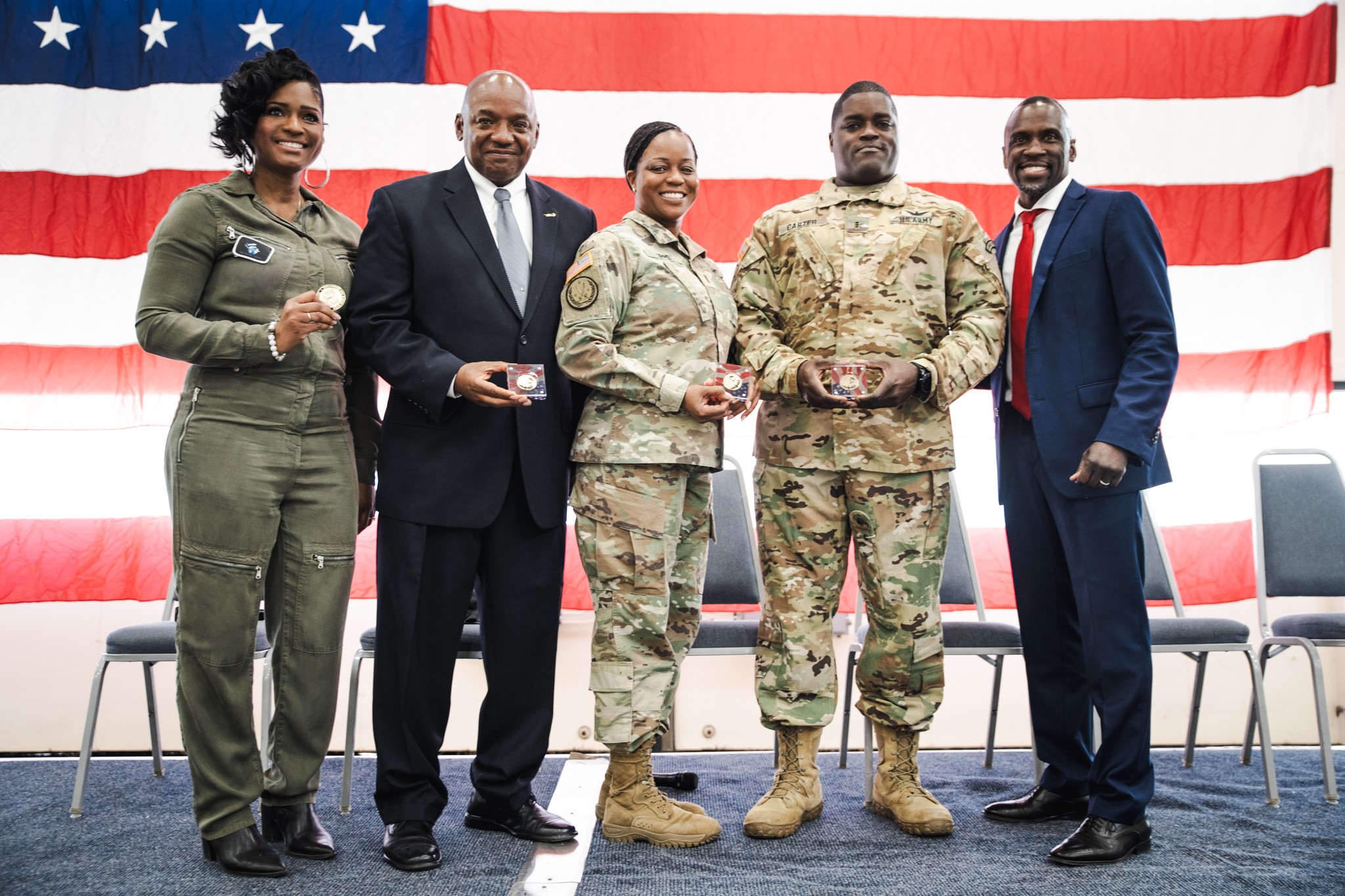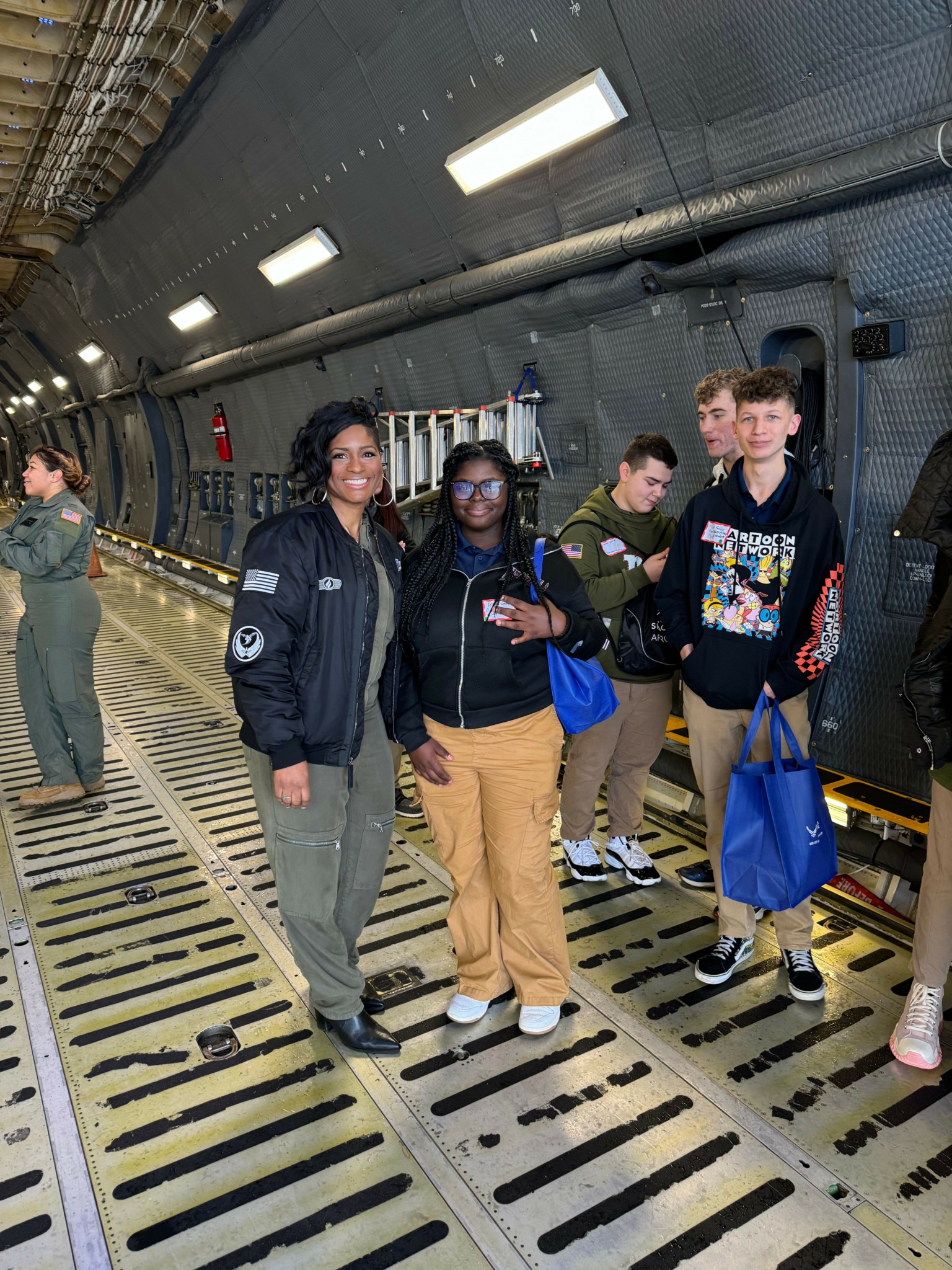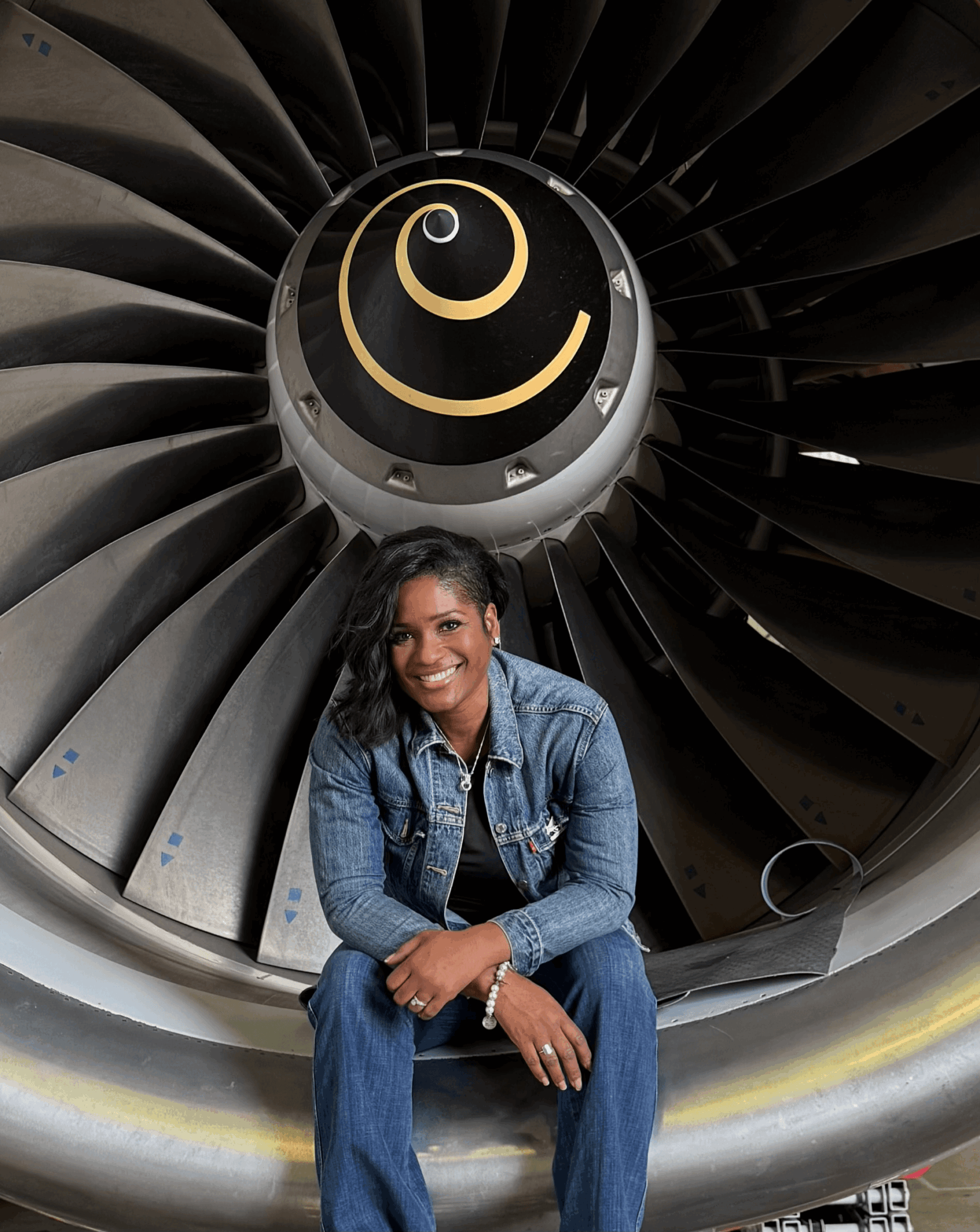We were lucky to catch up with Samantha T. Mitchell recently and have shared our conversation below.
Samantha T., thanks for taking the time to share your stories with us today How did you come up with the idea for your business?
It all began after I wrote my book, “The 3 Keys to Unlock and Unleash Your Confidence.” I poured my journey into those pages—every obstacle I faced, every breakthrough I earned, and every moment I had to believe in myself when the world told me I didn’t belong. I thought I was closing a chapter. But in truth, I was opening the door to something far greater.
Shortly after the book was published, the invitations started rolling in. People wanted to hear my story—how I broke into an industry where few who looked like me ever made it, and how I held my own on airport tarmacs, in boardrooms, and in classrooms where I was often the only Black woman in the room. It was beyond humbling—and deeply affirming.
Then one day, during a session with one of my speaking coaches, they asked me a question that stopped me in my tracks:
“Why do you want to do this?”
Without hesitation, I replied,
“Because I want to be there for the younger version of me.”
That answer stayed with me. I immediately saw my 23-year-old self again—walking into JFK Airport for the very first time as the first female Aircraft Maintenance Technician for Air Jamaica. I was filled with hope, but I had no blueprint. No mentor who looked like me. No safe space to ask questions. Just grit, faith, and a dream.
That was the moment everything came together.
I realized I wasn’t just writing a book or stepping onto stages—I was building a movement. Because the truth is: if people can see it, they can be it. But in aviation, Black women are still nearly invisible. We make up less than 1% of the industry—not because we lack talent, but because we lack access.
So I created Black Women in Aviation not just to solve a problem—but to fill a void that had existed for far too long. I wanted to build the kind of community I never had. One where no young woman has to question if she belongs in this space. A place that offers mentorship, visibility, and real opportunities—so that future pilots, engineers, maintenance techs, and leaders can soar. We’re not just opening doors—we’re rebuilding the entire ecosystem.
What excites me most isn’t just the vision. It’s the urgency. The deep knowing that this is more than a business. It’s a mission. A movement. A legacy in motion.
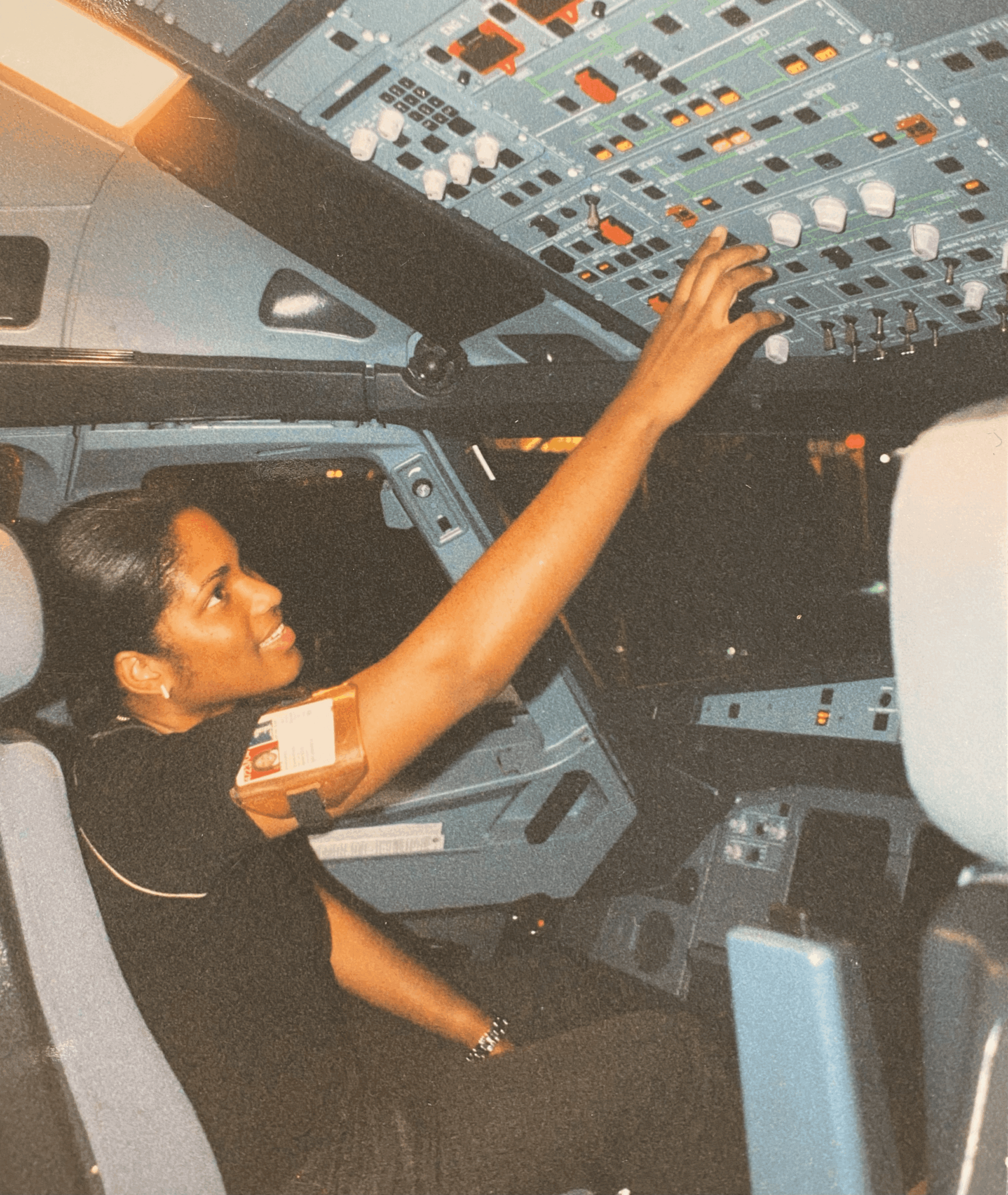
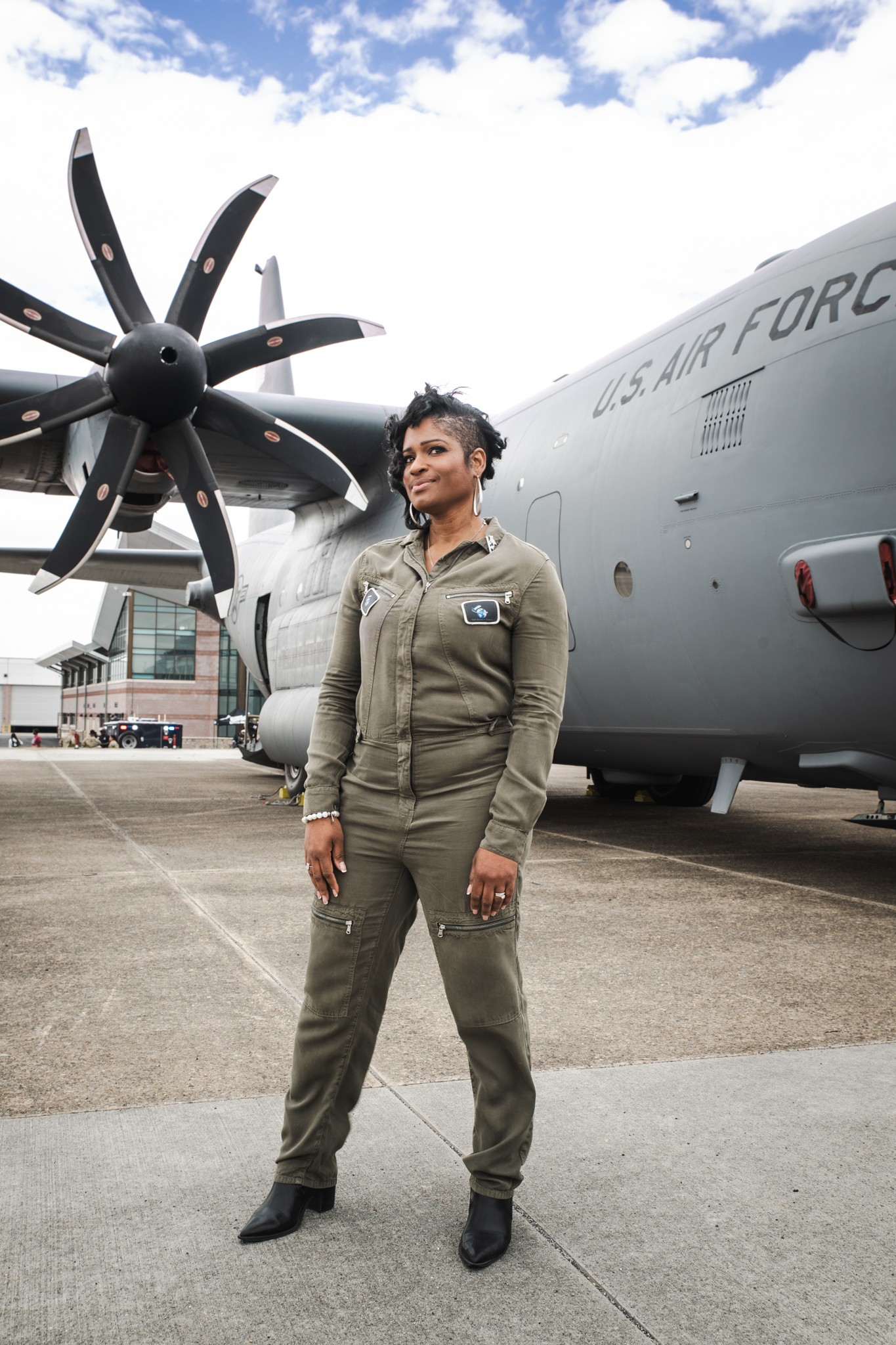
Samantha T., love having you share your insights with us. Before we ask you more questions, maybe you can take a moment to introduce yourself to our readers who might have missed our earlier conversations?
I’m Samantha T. Mitchell—aviation professional, author, speaker, and the proud founder of Black Women in Aviation (BWIA). My journey into aviation began long before I ever stepped foot on the flight ramp. I was a hands-on, mechanically inclined youth, always tinkering and fixing things. One day, my mom looked at me and said, “You should work with your hands.” That one sentence planted a seed.
At the time, I didn’t know how to translate that into a career—I thought maybe I should become an auto mechanic, because that was all I had seen. But everything changed during my senior year of high school when I received a brochure from Vaughn College of Aeronautics. It introduced me to the idea of earning an Airframe & Powerplant license and working on aircraft. That moment opened up a world I never knew existed—and launched me into a career where I would later become the first female Aircraft Maintenance Technician for Air Jamaica at JFK International Airport.
For over two decades, I’ve built a dynamic career that’s taken me from turning wrenches on the tarmac to leading in high impact program management roles —bridging hands-on expertise with strategic execution. But while I was building my career, I couldn’t ignore the fact that I was often the only Black woman in the room. That feeling—of being present but not fully seen—stayed with me for decades.
That’s what led me to create Black Women in Aviation, a nonprofit dedicated to increasing representation, access, and visibility for Black women and girls in aviation. At BWIA, we provide career exposure events, mentorship, scholarships, coaching, and community. We support future pilots, maintenance technicians, aerospace engineers, aviation executives—and help them not just get in the door, but thrive once they’re in.
BWIA addresses access. Talent is universal, but opportunity is not. Black women make up less than 1% of the aviation workforce. That’s not because we lack potential—it’s because the industry has lacked intentional pathways, representation, and support. We’re here to change that.
What makes us different is that we lead from lived experience. BWIA is not built on theory—it’s built on truth. We don’t just talk about equity, we build tangible programs and systems to achieve it. And we lead with a deep belief that if people can see it, they can be it.
I’m most proud of the community we’ve cultivated—a growing movement of young girls, professionals, and changemakers who now see aviation as a space they can belong to. BWIA is about breaking ceilings, building runways, and ensuring that the next generation has a smoother flight path than the ones before them.
To those just discovering us: BWIA is more than an organization. It’s a movement. A sisterhood. A force of representation, resilience, and rising higher—together.
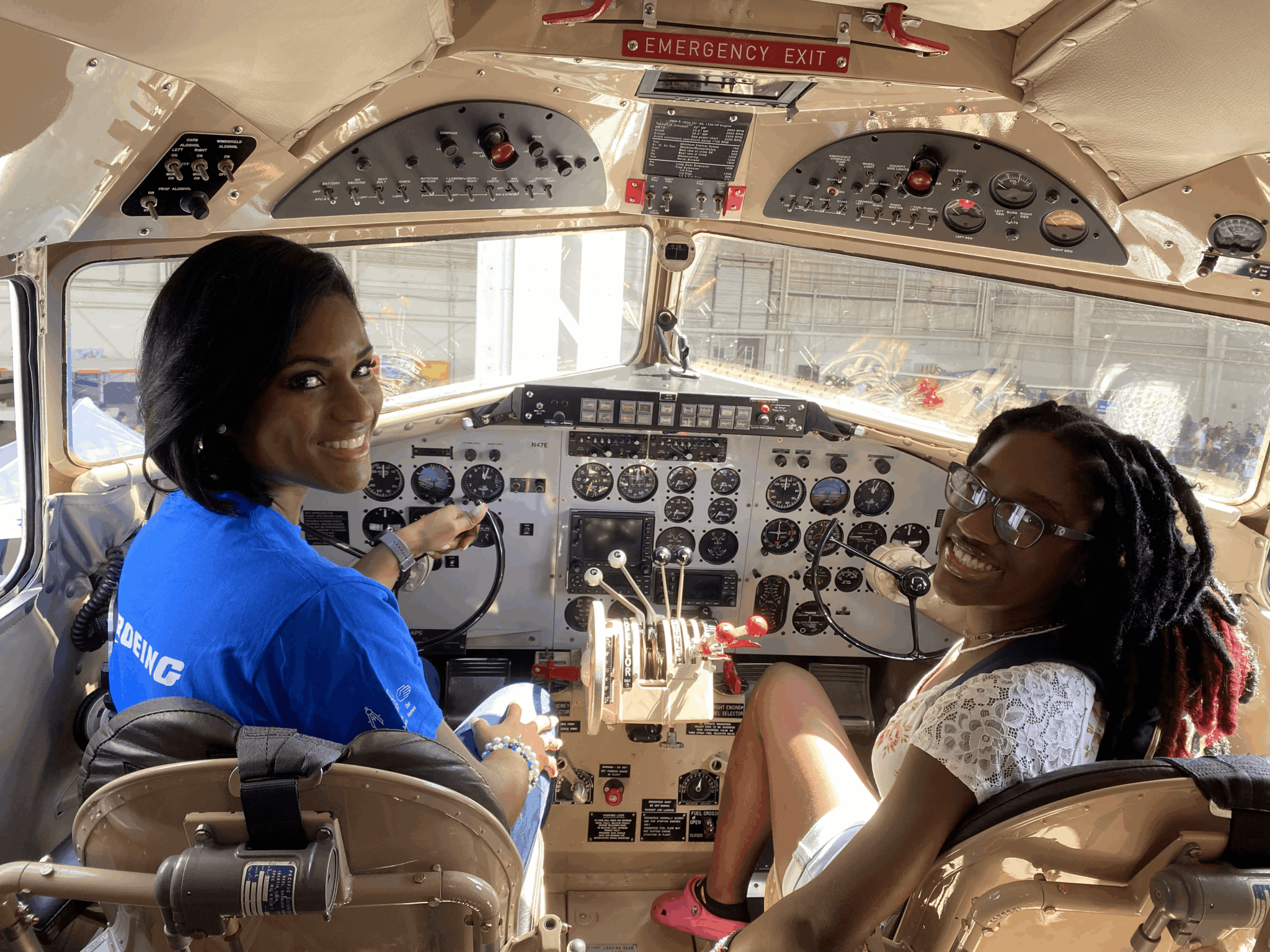

Learning and unlearning are both critical parts of growth – can you share a story of a time when you had to unlearn a lesson?
One of the biggest lessons I had to unlearn was the idea that belonging meant blending in.
For most of my career, I navigated aviation spaces that weren’t built with me in mind. I was surrounded by the traditional frameworks of the industry—male-dominated, majority white, and rooted in legacy systems that didn’t reflect my story. I didn’t join any organizations specific to Black professionals or women because I was conditioned to believe that success meant assimilating, not standing out. I didn’t realize at the time how much I had internalized the belief that *there wasn’t space* for something different.
But then something shifted. After years of working behind the scenes, writing my book, and speaking publicly, I realized that what was missing from the industry wasn’t talent—it was representation. And that absence was costing us more than we knew.
That’s when God placed Black Women in Aviation on my heart. It was clear. It was undeniable. And it was deeply personal. I was being called to lead the very thing I never had—a space where Black women in aviation felt seen, supported, and empowered.
Starting BWIA was an act of obedience. Even the name felt sacred. When we began the trademark process, our attorney advised us to consider changing it—recommending something more distinctive and brandable. But I knew in my spirit that this was the name. This was the assignment. BWIA wasn’t just a brand—it was a calling. And I wasn’t going to compromise on that.
Every time I show up—whether it’s speaking to students, mentoring a young woman, or building this organization from the ground up—I remind myself: I’m not doing this for visibility. I’m doing this for purpose. I’m doing this for the 23-year-old version of me who didn’t have a blueprint.
So the lesson I unlearned? That I had to shrink or assimilate to succeed. I now know that my difference is my divine distinction. And that sometimes, the spaces we’re called to build don’t exist yet—because we were chosen to create them.
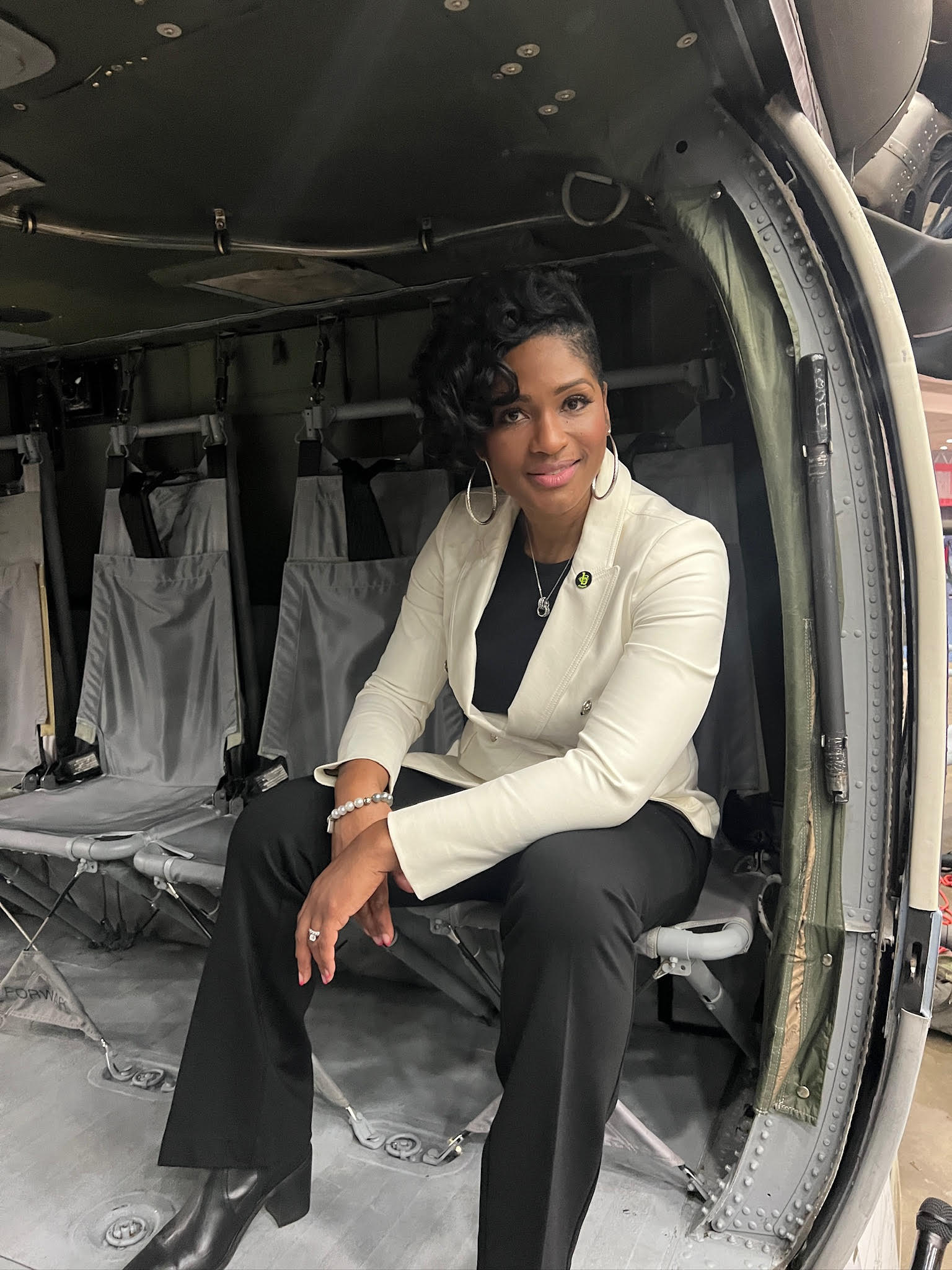
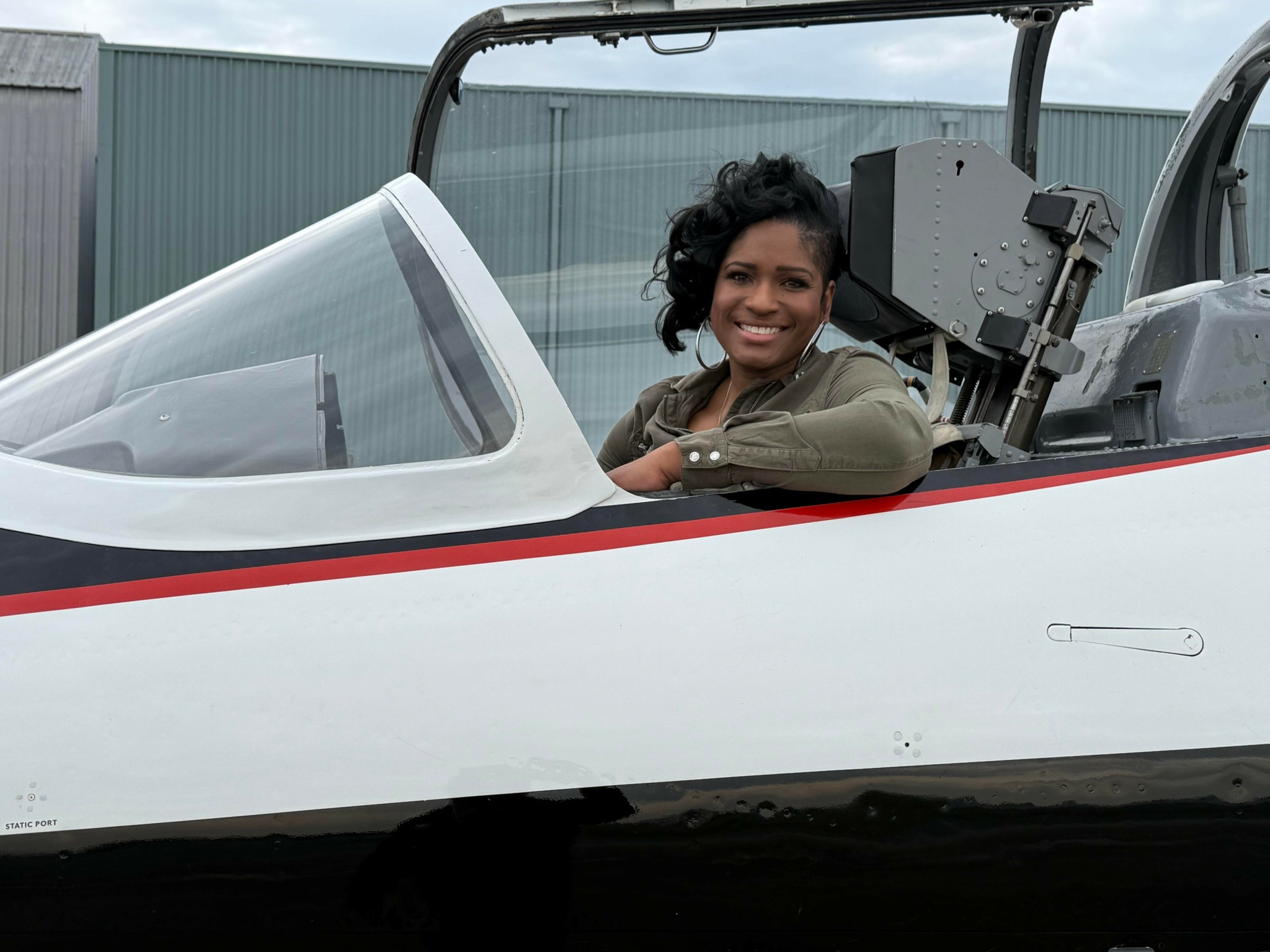
How about pivoting – can you share the story of a time you’ve had to pivot?
One of the most defining pivots in my life came just after college. Like many students in aviation, I had one big dream: to work for Boeing. It felt like the pinnacle—a place where I could grow, innovate, and make an impact in the field I loved.
During a Boeing hiring event at my college, everything seemed to align. I aced the interviews, was flown out to the site, and felt like I was standing at the threshold of everything I’d worked so hard for. But then, during a conversation with the HR representative, he casually mentioned the requirement for secret and top-secret clearance.
In that moment, my heart sank. I realized—right there—that I wasn’t a U.S. citizen. And without citizenship, I couldn’t hold the clearances required for the role. What felt like a dream fulfilled quickly turned into a door that wasn’t quite open. I was devastated. I had done the work, passed the interviews—but there was a piece of my story that needed to catch up.
I was standing at a crossroads: let go of the dream, or take the long road to make it possible.
I chose the long road.
I immediately began the process of applying for U.S. citizenship—knowing that it wouldn’t be fast, but believing it would be worth it. While waiting, I applied to another opportunity with Air Jamaica. That decision changed everything.
I became the first female Aircraft Maintenance Technician for Air Jamaica at JFK. That year was transformative. I gained hands-on experience, grew my confidence, and realized that sometimes the detour is the destination in disguise.
A year later, my citizenship paperwork came through and Boeing was hiring again. This time, I was qualified. This time, the door didn’t just open—I was ready to walk through it on my terms.
That season taught me that delay doesn’t mean denial. It reminded me that pivots often carry purpose. And most of all, it showed me that what looks like a closed door may simply be a redirection toward history you were born to make.
Contact Info:
- Website: https://www.blackwomeninaviation.com/
- Instagram: https://www.instagram.com/blackwomeninaviation/?next=%2F
- Facebook: https://www.facebook.com/blackwomeninaviation/
- Linkedin: Black Women in Aviation
